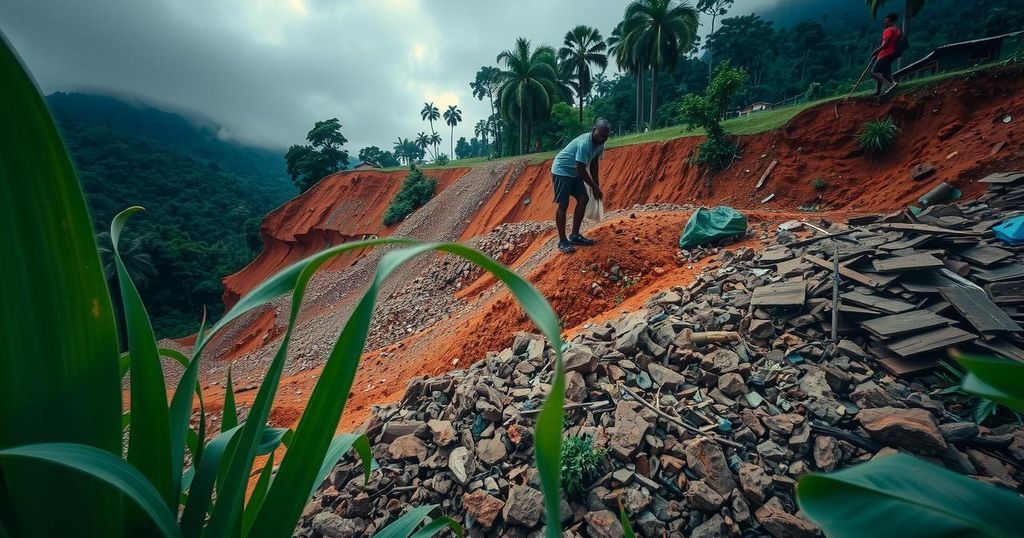At least 30 people are feared dead following devastating landslides in eastern Uganda triggered by heavy rains, with local officials warning that the death toll could increase. Several villages have been impacted, and efforts to locate and rescue survivors are underway, highlighting the region’s vulnerability to environmental disasters.
Recent landslides in Bulambuli district, eastern Uganda, have led to fears that at least 30 individuals have lost their lives. Following heavy rainfall, local officials warned that the death toll might rise as further assessments are undertaken. The district commissioner, Faheera Mpalanyi, reported that six bodies, including that of a child, have been recovered from the rubble, yet it is anticipated that many remain missing. The Ugandan Red Cross has confirmed that 13 bodies have been found, while extensive destruction across multiple villages has occurred, with approximately 40 homes completely destroyed. The repercussions of these landslides underscore the precariousness of the region, particularly in light of the historical context of deadly landslides in Uganda and neighboring countries.
Uganda has a history of dealing with severe weather-related disasters, particularly in its mountainous regions where landslides can occur after heavy rains. The recent rainfall has triggered national disaster alerts, particularly after a tributary of the Nile overflowed, causing flooding. The vulnerability of the population is evident, given the frequency of such events, which have previously resulted in significant loss of life. The country’s emergency response efforts are now under scrutiny as officials assess the damage and coordinate rescue operations in affected areas.
The tragic events in eastern Uganda highlight the dangers posed by heavy rainfall and landslides, prompting governmental and humanitarian responses to assess the situation and recover victims. As rescue efforts continue, there is a pressing need for enhanced disaster preparedness to mitigate future risks in similar vulnerable regions. The local population’s safety remains paramount as authorities mobilize to address the humanitarian impact of these recent calamities.
Original Source: www.barrons.com






